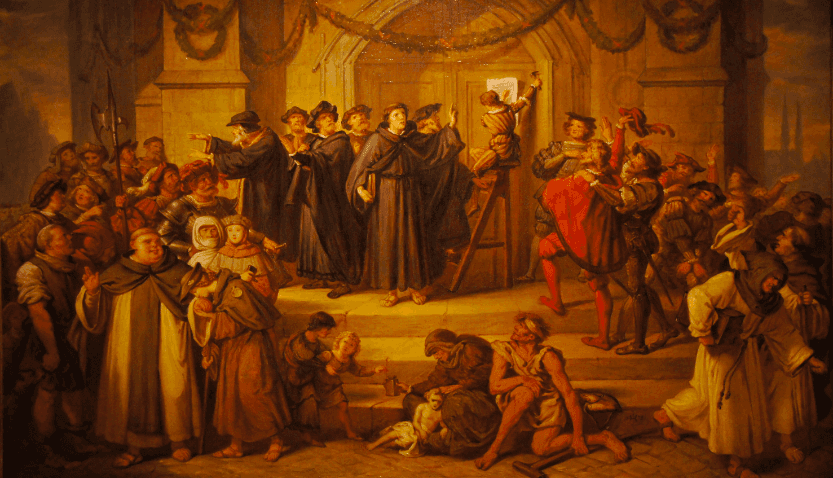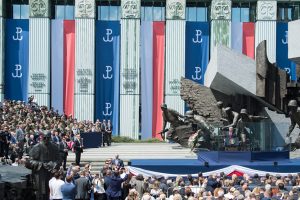From March 29 to March 31, 2017, a conference titled, “Luther: 500 Years Later: A rereading of the Lutheran Reformation in its historic ecclesial context” took place at the Vatican. It was sponsored by the Pontifical Committee for Historical Sciences. Pope Francis was on hand to greet the participants on March 31.
The conference was an ecumenical get-together in preparation for the commemoration of the nailing of Luther’s 95 theses to Wittenberg Castle Church door by the World Lutheran Federation and the Roman Catholic Church.
In his remarks to those assembled, Pope Francis expressed his delight and surprise that such a meeting should take place.
“I confess that my first response to this praiseworthy initiative of the Pontifical Committee for Historical Sciences was one of gratitude to God, together with a certain surprise, since not long ago a meeting like this would have been unthinkable.”
Pope Francis is surprised because Protestants have gradually fallen back to Rome by seeking her favor. They have made compromises and concessions which the Catholic Church are surprised to see and fail to understand. Francis went on to say,
“All of us are well aware that the past cannot be changed. Yet today, after fifty years of ecumenical dialogue between Catholics and Protestants, it is possible to engage in a purification of memory.”
Pope Francis would like us to forget about the past. He does not want us to remember what it was like for Protestants when the Catholic Church had political power. The last three popes and especially, John Paul II, carried out what the Vatican refers to as a “purification of memory.”
John Paul II wrote, “As the successor of Peter, I ask that in this year of mercy the Church, strong in the holiness which she receives from her Lord, should kneel before God and implore forgiveness for the past and present sins of her sons and daughters.” Forget about what has done in the past, not by the Catholic Church itself, but by its members.
“The Roman Church now presents a fair front to the world, covering with apologies her record of horrible cruelties. She has clothed herself in Christlike garments; but she is unchanged. Every principle of the papacy that existed in past ages exists today. The doctrines devised in the darkest ages are still held. Let none deceive themselves. The papacy that Protestants are now so ready to honor is the same that ruled the world in the days of the Reformation, when men of God stood up, at the peril of their lives, to expose her iniquity. She possesses the same pride and arrogant assumption that lorded it over kings and princes, and claimed the prerogatives of God. Her spirit is no less cruel and despotic now than when she crushed out human liberty and slew the saints of the Most High.” White, Ellen G., The Great Controversy, p. 571
Pope Francis would not only like us to forget the past but to correct our understanding of what really happened during the Middle Ages when the Catholic Church ruled Europe with an iron hand.
“This is not to undertake an impracticable correction of all that happened five hundred years ago, but rather ‘to tell that history differently’ (Lutheran-Roman Catholic Commission On Unity, From Conflict to Communion, June 17, 2013, 16) free of any lingering trace of the resentment over past injuries that has distorted our view of one another.”
In the fall of 2017, the Lutheran World Federation and the Roman Catholic Church will commemorate Luther’s contribution to the world. The Lutheran-Roman Catholic Commission on Unity “invites all Christians to study its report open-mindedly and critically, and to walk along the path towards the full, visible unity of the Church.”
Revelation 17 speaks of a time when the mother (Rome) and her daughters (Protestants uniting with her) will seek to control the kings of the earth. The uniting of churches on what appears to be common points is paving the way for fulfillment of the apocalypse.

